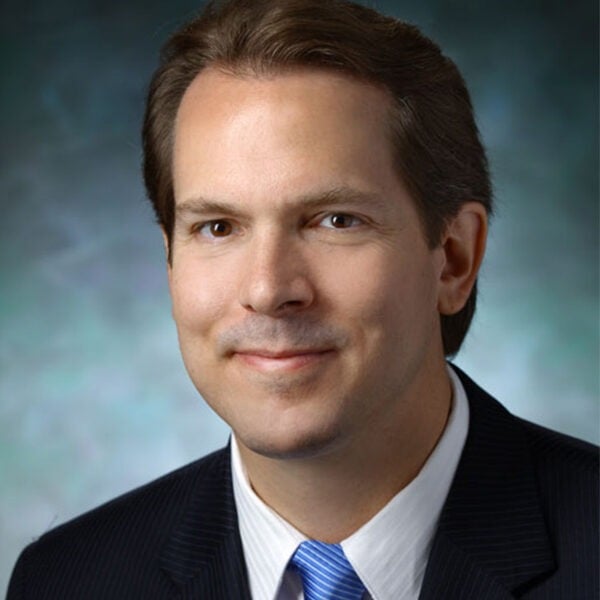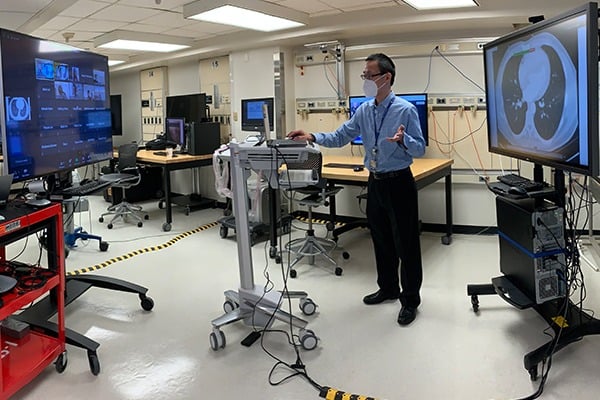Research Interests
Research Interests
My goals are to bring breakthroughs in engineering, physics, and computer science to major challenges of human health, and to educate the next generation of leaders in biomedical imaging. My research involves the creation and clinical translation of new medical imaging technologies, techniques, and algorithms. Areas of major interest include:
- Physics of image quality
- Mathematical models of imaging performance
- Design and optimization of new 3D imaging systems
- Computed tomography (CT) and cone-beam CT (CBCT)
- 3D image reconstruction
- Image registration
- Image analytics
- Application to diagnostic and image-guided procedures.
Examples of my work are evident in systems that are now standard of care in image-guided radiation therapy (CBCT on linear accelerators), image-guided surgery (CBCT on mobile C-arms), and orthopaedics imaging (CBCT for weight-bearing extremities) as well as underlying algorithms for image reconstruction and registration. Intrinsic to such work is close clinical collaboration with radiologists, surgeons, and radiation oncologists to accelerate translation of concepts to first clinical application.
Such work also underlies my approach to educating the next generation of leaders in biomedical imaging not only in cutting-edge technologies and computational methods but also a deep appreciation of real clinical challenges and workflow.
Titles & Affiliations
Titles
- Vice-Chair for Clinical and Industry Collaboration
- John C. Malone Professor, Biomedical Engineering
- Professor, Computer Science
- Professor, Neurosurgery
- Professor, Radiology
- Co-Director, Carnegie Center for Surgical Innovation
- Associate faculty, Armstrong Institute for Patient Safety and Quality
Affiliated Centers & Institutes
Education
Education
- PhD, Physics, University of Michigan, 1998
- MS, Physics, University of Michigan, 1994
- BA, Physics, Astronomy, University of Minnesota, 1992
Faculty News
Recent Highlights
-
December 7, 2020CT scans are vital to imaging lung diseases including COVID-19, but disinfecting the machines between use is time consuming. One team of researchers may have landed on a solution.
-
July 10, 2020Engineers at Johns Hopkins have solved the problem of distorted imaging scans that plague surgeons who need to use them to assess the placement of metal implants.
-
January 10, 2020Find out how a new member of the clinical team in the operating room holds the potential to help revolutionize the standard of patient care.
Media


